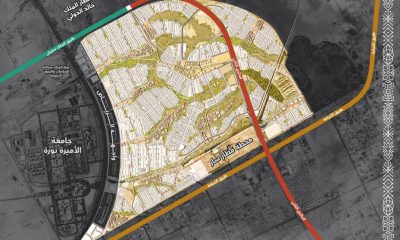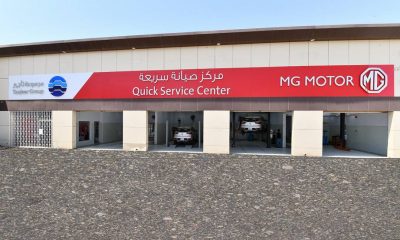كشف خبراء في قطاع تكنولوجيا المعلومات اليوم عن أن القطاع العام في الشرق الأوسط هو أكبر منتج لـ”البيانات الضخمة” (Big Data)، وأن على الشركات والمؤسسات أن تتغلب على تحديات عمليات التحليل المنطقي والتدريب لتوفير خدمات أفضل للمواطنين والسكان. جاء ذلك خلال سلسلة “أيام الابتكار” التي تقام في كلية محمد بن راشد للإدارة الحكومية، المؤسسة المؤسسة البحثية والتعليمية المتخصصة في السياسات العامة في الوطن العربي.
وتقول أرقام شركة GSMA Intelligence إنه في عصر مفهوم “إنترنت الأشياء”، يتوقع أن تنمو اتصالات الآلة-إلى-آلة (M2M) من 195 مليوناً في 2013 إلى ما يقارب المليار بحلول العام 2020. بينما تتوقع أرقام شركة Booz & Co أن قيمة سوق اتصالات الآلة-إلى-آلة في الشرق الأوسط وشمال أفريقيا ستنمو من 7.9 مليار دولار في 2014 إلى 9 مليارات دولار في 2015.
وقال عرفان خان، الرئيس التنفيذي لتكنولوجيا المعلومات في شركة “إس إيه بي”، في حديثه أمام الحاضرين لفعالية “أيام الابتكار” الثانية التي تستضيفها كلية محمد بن راشد للإدارة الحكومية: “يعد القطاع العام في الشرق الأوسط أكبر منتج ومستهلك للبيانات الضخمة، كما تسعى الهيئات والمؤسسات الحكومية إلى اتخاذ قرارات واعية لتحسين خدماتها وتخفيض التكاليف وتحسين رفاهية السكان”.
وأضاف: “تستطيع الحكومات باستخدام الحلول المبنية على السحابة أن تتغلب على ثلاث صعوبات خاصة بالبيانات الضخمة، ألا وهي حجمها وتنوعها وسرعة نموها، وذلك بغية تحسين عوامل الكفاءة والإنتاجية والمرونة”.
وفي إطار الحاجة إلى تدريب العاملين في القطاع الحكومي على صقل مهاراتهم التقنية، من المتوقع أن يتنامى الطلب على خبراء عمليات التحليل المنطقي بنسبة 88% وخبراء السحابة الإلكترونية بنسبة 160% خلال الأعوام الثلاثة القادمة في الإمارات، وذلك بحسب دراسة أجرتها كل من “أوكسفورد إكونوميكس” و”اس ايه بي” جاءت بعنوان “قوى العمل 2020”.
وقال غازي عطا الله، العضو المنتدب لمجموعة neXgen الاستشارية: “تأتي حكومات الشرق الأوسط في طليعة مستخدمي البيانات الضخمة التي تساهم في تحسين الخدمات الحكومية، ويأتي ذلك من خلال التعاون مع القطاع الخاص والشركات الناشئة. لكن لتحويل البيانات الضخمة إلى رؤى قابلة للتطبيق، تحتاج الهيئات الحكومية إلى بنية تحتية تقنية وأدوات التحليل المنطقي لإجراء تحليل متكامل للبيانات الضخمة وتدريب الموظفين والتأسيس لثقافة عمل بنّاءة ومبتكرة”.
وفي إطار دعمها عملية التحول الحكومي تلك، أطلقت “إس إيه بي” مؤخراً حلول SAP S/4 HANA التي تجمع بين البيانات الضخمة، وأدوات التحليل التنبؤي، وأدوات البحث النصي لتمكين المستخدمين من النفاذ إلى المعلومات والتأقلم مع الظروف المتغيرة وتوقع النتائج واتخاذ قرارات أفضل.
بدوره قال سعادة الدكتور علي سباع المري، الرئيس التنفيذي لكلية محمد بن راشد للإدارة الحكومية: “لقد أثبتت شراكة كلية محمد بن راشد للإدارة الحكومية مع شركة ’اس ايه بي‘ نجاحها، ومن شأن هذا التعاون أن يرتقي بالخدمات العامة إلى مستويات جديدة تماماً على الصعيد التقني”.
وأضاف: “حرصاً منا على تحقيق رؤية صاحب السمو الشيخ محمد بن راشد آل مكتوم، نائب رئيس الدولة رئيس مجلس الوزراء حاكم دبي، تلتزم الكلية بتبني أفضل الحلول التي تدعم تطوير دبي والإمارات. وسوف نواصل دعم مجالات الأبحاث والجهود الرامية إلى تعزيز الخدمات العامة من خلال فعالية ’أيام الابتكار‘. إننا حريصون في كلية محمد بن راشد للإدارة الحكومية على توفير منصة معرفية تدعم التشارك الفكري بين مؤسسات القطاعين العام والخاص، وتعمل على إثراء المعرفة بالتقنيات الحديثة والطرق المثلى للاستفادة منها في تطوير الخدمات الحكومية”.
وتجمع سلسلة “أيام الابتكار” خيرة المفكرين العالميين لمناقشة مواضيع منوعة مثل أهمية الأجهزة المتحركة، والسحابة الإلكترونية، والتطبيقات المتحركة، والبيانات الكبيرة، والإعلام الاجتماعي، وأدوات تحليل الأعمال.
يذكر أن كلية محمد بن راشد للإدارة الحكومية تركز على تعزيز الحوكمة والسياسات العامة الفعالة من خلال إجراء الأبحاث وتطبيق البرامج الأكاديمية وبرامج التعليم التنفيذي وعقد المنتديات المعرفية.

As the Middle East’s public sector is one of the largest producers of Big Data, government agencies need to train staff in Big Data analytics to deliver enhanced citizen services, industry experts announced today
In the Internet of Things era, global cellular machine-to-machine (M2M) connections will grow from 195 million in 2013 to nearly one billion by 2020, according to GSMA Intelligence. booz&co predicts the Middle East and North Africa’s M2M market will grow from USD 7.9 billion in 2014 to USD 9.0 billion in 2015
As a result, 81 percent of top managers in global government agencies agree that Big Data is crucial to meeting their mission, according to a survey by SAP and Bloomberg Businessweek Research Services. In response, agencies need to overcome challenges in training staff, processing data, and agency culture
Given the high levels of production and consumption of Big Data in the Middle East’s public sector, government agencies are well positioned to leverage this data to make more informed decisions to drive enhanced services, reduction in costs, and improvements in the wellbeing of citizens,” Irfan Khan, Chief Technology Officer, SAP GCO, told delegates at the second “Innovation Days” event hosted by the Mohammed Bin Rashid School of Government and SAP
“By using cloud-based solutions, governments can more quickly overcome the three V’s of Big Data – volume, variety, and velocity – to achieve greater agility, efficiency, and productivity,” added Irfan Khan
Illustrating the need to train public sector workers on technology skills, demand for analytics skills are set to grow by 88 percent and cloud skills 160 percent over the next three years in the UAE, according to the Oxford Economics and SAP study “Workforce 2020”
By working with the private sector and start-ups, Middle East governments are at the forefront of using Big Data to transform government services delivery. But to transform Big Data into actionable insights, agencies need the IT infrastructure and analytical tools to crunch Big Data, and train the right staff and innovate agency culture,” said Ghazi Atallah, Managing Director, neXgen Advisory Group
Supporting government transformation, SAP’s recently-launched SAP S/4 HANA combines Big Data, predictive analytics, and text search to empower users to access information, adapt to changing conditions, predict outcomes, and make better decisions
“Mohammed Bin Rashid School of Government’s strategic partnership with SAP has proven highly fruitful. Our collaborations have successfully taken public service governance to the next level on the technological front,” said His Excellency Dr Ali Sebaa Al Marri, Executive President, Mohammed Bin Rashid School of Government
“In line with the vision of Dubai’s leadership, we are committed to finding best in class solutions that support the development of our emirate and nation. We at MBRSG are keen to establish a knowledge platform that engages public and private sectors and provides technical support that enhances the delivery of quality government services. Towards this priority, we aim to continue strengthening the public administration domain with productive research and dialogue through initiatives such as the Innovation Days,” he added
The Innovation Days series features global thought leaders tackling topics such as the growing importance of mobility, cloud, mobile apps, big data, social media, and business analytics
The Mohammed Bin Rashid School of Government promotes good governance and effective public policy through research, academic programs, executive education programs, and knowledge forums


 أسواق5 سنوات ago
أسواق5 سنوات ago
 عقارات5 سنوات ago
عقارات5 سنوات ago
 سيارات5 سنوات ago
سيارات5 سنوات ago
 فن4 سنوات ago
فن4 سنوات ago
 منوعاتسنتين ago
منوعاتسنتين ago
 مطاعم4 سنوات ago
مطاعم4 سنوات ago
 عطورات3 سنوات ago
عطورات3 سنوات ago
 عطورات4 سنوات ago
عطورات4 سنوات ago




